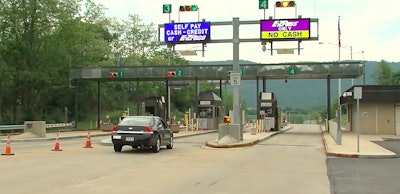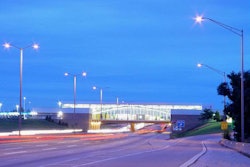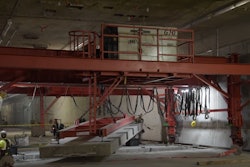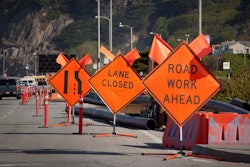
The Owner Operator Independent Drivers Association has filed a federal lawsuit that says $5.875 billion the turnpike commission has paid to the Pennsylvania Department of Transportation is unconstitutional because the tolls that fund it put an “undue burden” on interstate commerce. The money goes toward non-turnpike uses throughout the state and necessitates the raising of tolls to cover those subsidies, the association says.
“The tolls imposed by PTC far exceed the value of the use of the facilities or services conferred on the operators of motor vehicles using the Pennsylvania Turnpike and far exceed the costs incurred to operate and maintain the Pennsylvania Turnpike System,” the association says.
The association, composed of owner-operator trucking businesses, is joined in the suit by the National Motorists Association, which represents automobile drivers. Other parties to the suit include owners of trucking companies and individual drivers who use the turnpike. Defendants in the suit include the turnpike commission, its officers and Governor Tom Wolf.
According to the suit, trucks represent about half of the turnpike’s annual toll revenues though they account for less than 15 percent of the traffic. In fiscal year 2016, truckers paid $43 million in turnpike toll revenue.
In 2007, the state legislature approved a lease and funding agreement between the turnpike commission and PennDOT in which the commission would provide “hundreds of millions of dollars annually to PennDOT for roads, bridges and transit throughout the state,” according to the suit.
The commission is required to pay $450 million a year until 2022. After that, the annual payment drops to $50 million a year until 2057, for a total of $9.65 billion, according to the suit.
The commission has issued $5.6 billion in new debt to make the payments, the suit says.
It lists some of the projects funded by the payments that have no relation to the turnpike: a mixed-use development of residential, office and transportation uses in Pittsburgh, a U.S. 22 underpass in Blair County and rehabilitation of nine stone-arch railway bridges.
“Funding these projects with toll receipts violates constitutional protections guaranteed to users of the Pennsylvania Turnpike,” the suit says.
The turnpike does not have the money to make the payments and it needs a 215-percent increase in toll revenue over the next 30 years to pay for the turnpike’s expenses and maintenance and the annual payments to PennDOT, according to the suit. It notes that tolls have more than doubled from 2009 to 2016 for each vehicle toll class.
It says the turnpike is being used as a “revenue-generating facility” and its tolls are excessive because of this.
The suit says the interstate commerce clause requires that user fees like tolls not discriminate against interstate commerce and travel, that they reflect a fair approximation of the use of the facilities for users and are not excessive in relation to the imposing authority’s costs. The suit also alleges the tolls unconstitutionally limit travelers’ access to the turnpike.
The suit seeks a preliminary injunction to stop the turnpike from spending toll revenues on anything other than necessary turnpike-related expenditures. It calls for a permanent halt to “constitutionally excessive tolls” and to the turnpike’s annual payments to PennDOT. It also seeks class-action status and awards of attorney fees and costs, damages to the plaintiffs and any further relief from the courts.
A spokesman for the turnpike commission said the agency had no comment on the lawsuit.
The American Truckers Association won a similar lawsuit in August 2016 filed against the New York Thruway for tolls being used to subsidize the state canal system. The 2nd U.S. Circuit Court of Appeals upheld a lower court ruling that 9 to 14 percent of the Thruway’s tolls that go to the canal system are unconstitutional. The Thruway is appealing that decision. The American Bus Association is also suing the Thruway over the constitutionality of its tolls going for the canal.











